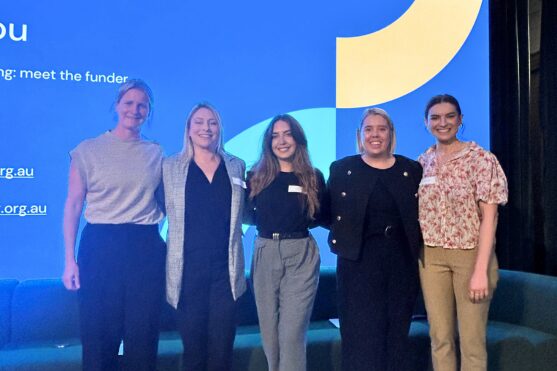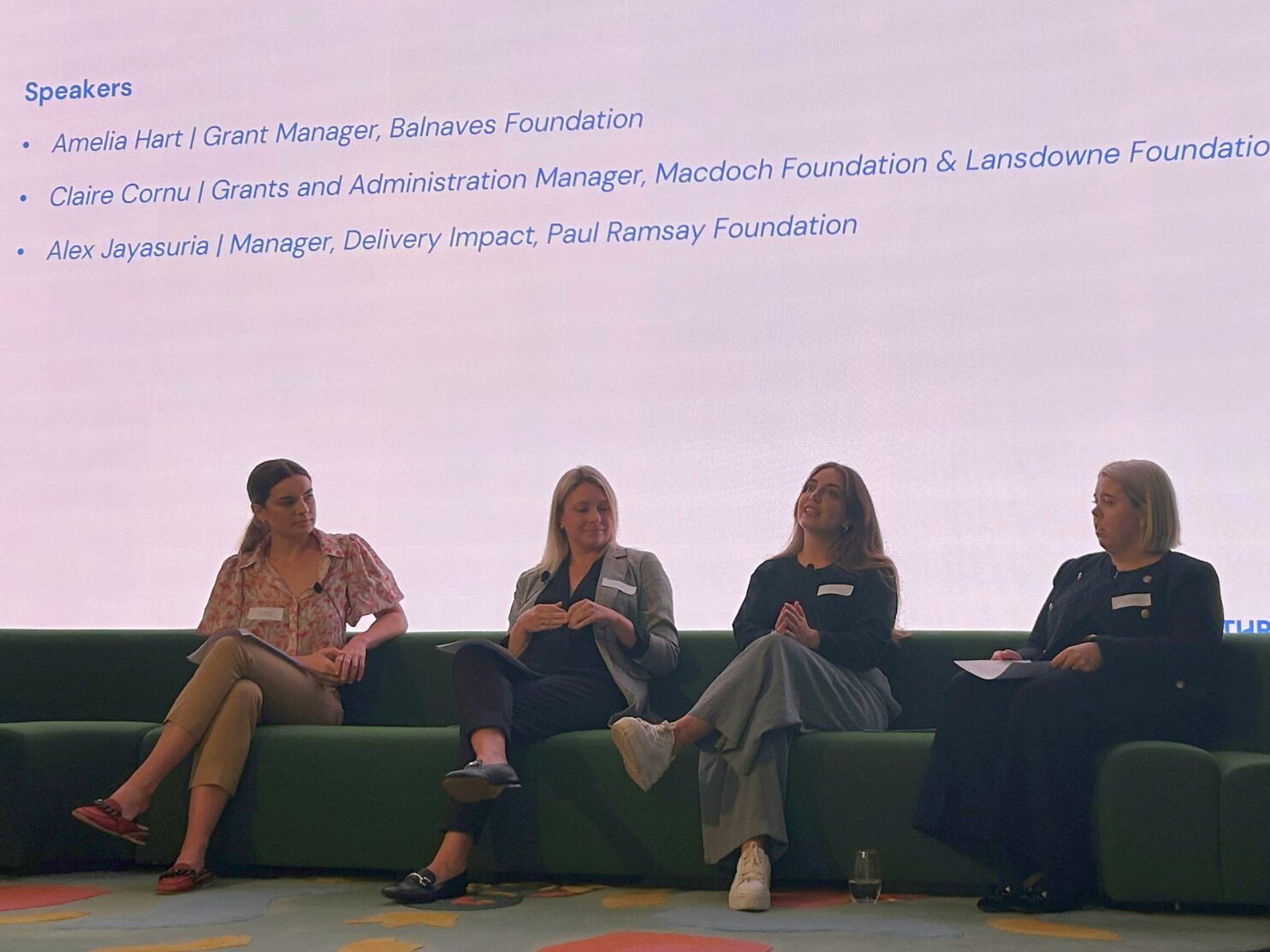Top 5 tips from funders for NFPs on grants and building relationships

How can not-for-profits (NFPs) improve their grant applications in the eyes of funders? How can NFPs build relationships within the sector and what are the benefits? What do funders want to see when it comes to NFPs sharing their vision and impact? These questions and more were put to a panel of key funders at Philanthropy Australia’s Meet the Funder event in Sydney this week.
Approximately 50 of our NFP members heard insights from Amelia Hart, from The Balnaves Foundation, Claire Cornu, of the Macdoch Foundation and Lansdowne Foundation, and Alex Jayasuriya, from the Paul Ramsay Foundation – and had the opportunity to ask their own questions.
Here are our top 5 takeaways from the panel discussion.
1. Do thorough research and ensure there’s genuine alignment with a prospective funder.
Conduct extensive research before reaching out. Review the foundation’s website, join their mailing list, and read their strategy. Ensure your program and organisation aligns with the funder’s focus. Know the appropriate team member to contact. This preparation demonstrates your commitment and increases the likelihood of a productive conversation.
2. Take time to invest in strategic relationship building.
Build relationships across the sector, not just with individual funders. Networking can allow you to foster allies and lead to valuable referrals, advocacy and the growth in brand awareness. Strengthening these connections can open doors to new opportunities and partnerships down the track – not every conversation should be a pitch. Let funders get to know you and what you do over time so that a deeper understanding and interest can develop organically. Invite the right staff member to relevant events for more targeted and effective engagement with your organisation.
3. Use clear communication so funders have the correct information to advocate for you.
Provide concise, clear information, especially in expressions of interests, cases for support and proposals. This approach ensures your key messages are understood and can be effectively communicated to decision-makers.
Present clear budgets and a well-defined theory of change. When communicating costs, use the principles from the Reframe Overheads initiative and point to the Pay What it Takes report – especially if you’re after unrestricted funding. Remember that the staff of philanthropic foundations act as ‘fundraisers’ themselves as they pitch to their trustees or board for funding for your project, so ensuring they have the right information to make a strong case on your behalf is critical.
4. Fewer focused applications are more effective.
Research is your best friend. Take time upfront to research which philanthropic foundations and individuals are funding in your area, invest effort into a few well-articulated applications rather than many, more generalised ones. A targeted approach not only saves time but also increases the chances of receiving support by showcasing your project’s unique value. While a funder might not be able to support you financially now, they may be able to down the track and/or they could help you in other ways such as by referring you to funders in their network.
5. Transparent and collaborative relationships build trust and empower funders to support NFPs deal with challenges.
Be transparent about your needs and true costs with funders. Inform them early if projects face challenges or roadblocks, so the onus of finding a way around these is shared and collaborative. Being honest and upfront before reporting time can mean that the funding partner is empowered to be part of the solution. Highlight if you have specific plans to do things with their funding, such as leveraging their support to get government backing. Open and candid communication builds trust and can lead to a stronger, more supportive partnership.

Philanthropy Australia’s NSW and ACT team are hosting two more events for non-profits members this year, Re-framing Overheads on Tuesday 24 September and an End of Year morning tea, in December. Members at the Active and Engaged level are welcome to join us. If you’re not a member and are interesting in learning about membership, visit this page on our website or reach out to us a [email protected].
Rachel Findlay, Director Impact & Engagement, NSW & ACT, Philanthropy Australia
Bella Conyngham, Associate Engagement Manager, NSW & ACT, Philanthropy Australia